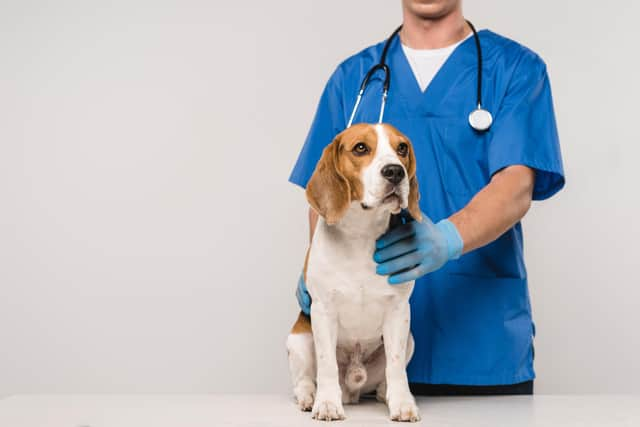Veterinary practices need to be clearer about their prices: Rocio Concha
Every pet owner dreads a trip to the vet - especially unplanned ones. How severe is the injury? Are there underlying medical issues only to be discovered on the treatment table?
Beyond the worry for your furry friend’s health is the price of the care they receive. A recent Which? survey of 2,000 pet owners found that over seven in 10 (73%) considered vet consultation fees expensive - and that’s before they get to the actual treatment. Eight in 10 (82%) thought vet treatments and medications were expensive - but to make matters worse it’s hard to shop around and compare treatment costs.
Advertisement
Hide AdAdvertisement
Hide AdWhich? believes that the difficulty pet owners have in comparing prices is partly a result of obscure pricing on veterinary websites. We all want the best for our pets, yet most practices our researchers looked at didn’t even have prices for any treatments on their websites - making it impossible to know how much of a financial commitment care will be. More than a third (36%) of survey respondents said they usually only find out about the price of treatment after the appointment at reception, by which point it may be too late to change your mind.


To compound matters, owners might be overpaying for medication. It can be cheaper to buy from online pharmacies, but there’s a lack of knowledge among owners that it’s possible to take a prescription elsewhere. One cat owner told us how they were quoted almost £200 at the vets but found the same medication online for less than £30.
Then there’s the issue of whether the treatment is necessary or not. A quarter (27%) of respondents told us they had at some point doubted whether a treatment recommended to them by their vet was really needed. Over half (53%) went along with it, but more experienced pet owners were more likely to refuse. Of those, likely less experienced owners, who went ahead with treatments they had doubts about, nearly three in 10 (28%) said they did so because they didn’t have enough information to know whether it was necessary or not.
The decline in the number of independent veterinary practices has also made it tougher to shop around. Independents accounted for nearly nine in 10 practices in the UK in 2013, but now that number has fallen to less than half. Yet because these ownership changes aren’t made clear enough, there’s a risk pet owners waste their time “shopping around” when the practices they’re looking at are actually part of the same overarching business. For example, we found three vets within two miles of one another in Birmingham all with different branding but owned by the same company.
Advertisement
Hide AdAdvertisement
Hide AdEncouragingly, the Competition and Markets Authority is looking into these issues, which should mean pet owners get a better deal when taking their pet to the vet. The CMA, which is responsible for promoting competitive markets in the UK, received tens of thousands of responses from pet owners following the launch of its review into the veterinary market in September last year and it is now proposing to conduct a more comprehensive 18-month inquiry into the sector.
Given the already strong level of public response, Which? would expect the regulator to instruct veterinary practices to be much clearer about the prices they charge pet owners. The ability for consumers to shop around for the best deal is important in all sectors - and people shouldn’t be left guessing the costs of caring for something as precious as the family pet.
So whether it’s your feline’s femur, tortoise’s tibia or puppy’s paws, you should know upfront how much the care will set you back.
Comment Guidelines
National World encourages reader discussion on our stories. User feedback, insights and back-and-forth exchanges add a rich layer of context to reporting. Please review our Community Guidelines before commenting.